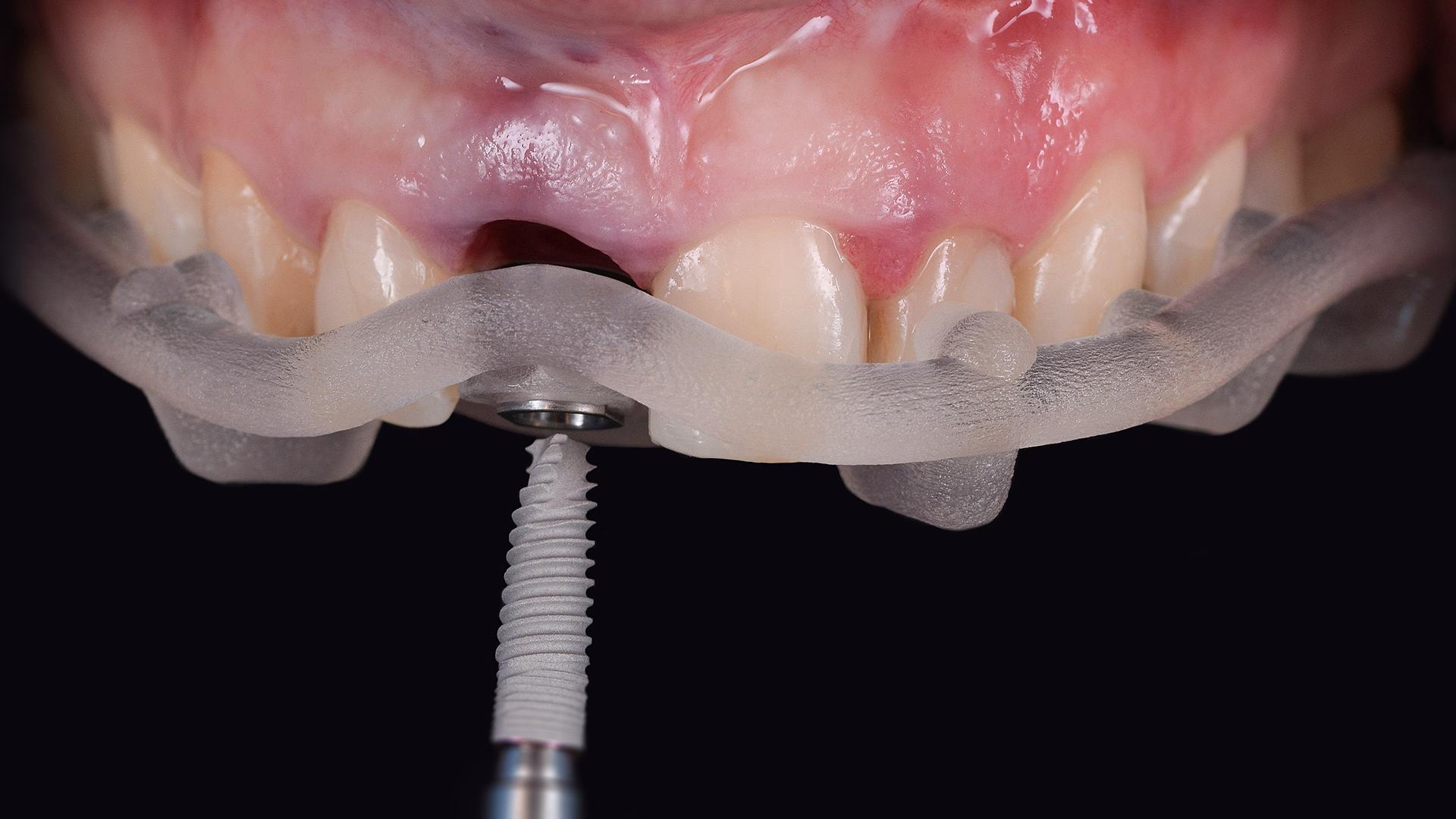What is Dental Implant Treatment? How is it Performed in Turkey, İstanbul
Treatment Summaries
Dentmax Treatment Price List
2025 Dental Implant Prices in Istanbul, Turkey – Updated Price List
DIAGNOSIS AND TREATMENT PLANNING
PRICE RANGE
TREATMENT PAGE
ONLINE APPOINTMENT
Osstem Implant Prices İstanbul, TÜRKİYE (South Korea Made) + Abutment + Standard Surgery Included (Excluding: Implant-Supported Crown) Discounted Unit Prices: 1: 399 EUR | 2-3: 359 EUR | 4-5: 329 EUR | 6-7: 309 EUR | 8-11: 299 EUR | 12-15: 294 EUR | 16: 2
€ 289 - 399
Click For Treatment
Click for Online Appointment
Bego Implant Prices İstanbul, TÜRKİYE (Germany Made) + Abutment + Standard Surgery Included (Excluding: Implant-Supported Crown) Discounted Unit Prices: 1: 499 EUR | 2-3: 459 EUR | 4-5: 429 EUR | 6-7: 409 EUR | 8-11: 399 EUR | 12-15: 394 EUR | 16: 389 EUR
€ 489 - 599
Click For Treatment
Click for Online Appointment
Hiossen Implant Prices İstanbul, TÜRKİYE (USA Made) + Abutment + Standard Surgery Included (Excluding: Implant-Supported Crown) Discounted Unit Prices: 1: 599 EUR | 2-3: 559 EUR | 4-5: 529 EUR | 6-7: 509 EUR | 8-11: 499 EUR | 12-15: 494 EUR | 16: 489 EUR
€ 489 - 599
Click For Treatment
Click for Online Appointment
Anthogyr Axiom® X3® Implant Prices İstanbul, TÜRKİYE (Straumann, France Made) + Abutment + Standard Surgery Included (Excluding: Implant-Supported Crown) Discounted Unit Prices: 1: 699 EUR | 2-3: 659 EUR | 4-5: 629 EUR | 6-7: 609 EUR | 8-11: 599 EUR | 12-
€ 589 - 699
Click For Treatment
Click for Online Appointment
Straumann Roxolid® SLActive® Implant Prices İstanbul, TÜRKİYE (Swiss Made) + Abutment + Standard Surgery Included (Excluding: Implant-Supported Crown) Discounted Unit Prices 1: 799 EUR | 2-3: 759 EUR | 4-5: 729 EUR | 6-7: 709 EUR | 8-11: 699 EUR | 12-15:
€ 689 - 799
Click For Treatment
Click for Online Appointment
What is Dental Implant Treatment? How is it Performed? - A Detailed Guide
Dental implants are titanium screws securely implanted into the jawbone to serve as tooth roots in areas with missing teeth. The treatment consists of two parts: the implant itself placed within the bone and the prosthetic that is affixed atop the implant. These newly installed dental implants are notably strong and durable. Thanks to advanced oral and dental health technologies, this frequently performed treatment offers both aesthetic and functional benefits today.
Main Headings
- Titanium screws fixed into the jawbone
- Treatment providing a natural tooth sensation without harming adjacent teeth
- Enhanced comfort in eating, speaking, and smiling
- Comprehensive assessment of oral and dental health in implant treatment
- Customised treatment planning and procedure
- A permanent and aesthetic solution in modern dentistry
What is Dental Implant Treatment? How is it Performed?
In contemporary dental practice, dental implant treatment is a commonly employed method for addressing missing or damaged teeth, offering numerous aesthetic and functional advantages. We will detail the definition, history, and necessary conditions for implant treatment. Additionally, this section will provide insights into how the treatment process unfolds and the benefits it delivers.
When is Dental Implant Treatment Necessary? Implant treatment is especially preferred for single missing teeth, multiple missing teeth, or total tooth loss. It offers a stable and enduring solution for patients with insufficient jawbone or more severe jaw and facial defects. Technological advances in dentistry continually enhance the treatment process. Implant surgery can even be successfully implemented in complex cases involving jaw and facial defects.
Advantages of Dental Implants Through dental implant treatment, patients regain functionality and comfort comparable to their real teeth. Implants are placed without damaging neighbouring teeth, offering more reliable and longer-lasting prosthetics than traditional bridge options. Moreover, advancements in dental technology have made implant treatment less painful and shortened the recovery period.
The table below compares implant surgery with traditional methods:
| Feature | Implant Surgery | Traditional Methods |
|---|---|---|
| Aesthetic | Natural tooth appearance | Relatively less natural |
| Function | Natural tooth functions | Limited functions |
| Durability | High durability | Moderate durability |
| Procedure Duration | Longer healing time | Quickly applicable |
| Impact on Adjacent Teeth | None | Present |
What are Dental Implants and What Materials Are They Made From? A significant innovation in modern dentistry, dental implants are artificial tooth roots used to replace missing teeth, integrated into the jawbone. Particularly, screw-like tooth roots allow patients to perform basic functions such as eating, speaking, and smiling almost as naturally as with real teeth.
Titanium implants have long been preferred in dentistry for their high biocompatibility rates. Over time, with technological advancements, zirconium implants have also emerged, creating aesthetic differences compared to titanium implants. Their resemblance to natural tooth colours and absence of any foreign taste are some of the prominent features of this material.
Below, you can find descriptions of various dental implant types and materials:
- Titanium Implants: Often the preferred type, known for their strength and durability. They show excellent integration with the jawbone, offering a long-term solution.
- Zirconium Implants: Increasingly used in aesthetic dentistry. They do not leave a metallic taste and are perfect for natural tooth aesthetics.
Both materials are suitable for creating artificial tooth roots and restoring the functions of lost teeth. The most appropriate material is selected based on the patient's oral health and aesthetic expectations, considering factors like mouth structure, allergic reactions, aesthetic expectations, and material costs.
The dentist must select the most suitable type of dental implant following a detailed consultation with the patient.
Modern dental implant technologies continuously enhance both patient comfort and the success rate of treatments.
Candidates Suitable for Dental Implant Treatment Dental implant treatment achieves successful outcomes only with suitable candidates, making patient evaluation crucial for the success of the treatment. Before beginning the treatment process, a comprehensive examination and assessment by the dentist are required. Here are the fundamental elements of this dynamic process:
Oral and Dental Health Assessment The condition of a person's oral and dental health is recorded in a detailed oral and dental health report. The examination of muscle and gum tissues forms the basis of this report. At this stage, the patient's gums and overall oral health that do not impede treatment are evaluated. All alternatives, including traditional implant treatments and mini implants, are considered.
Jawbone Density and Health The stability and durability of the implant are directly related to the quality of the jawbone. Problems like bone resorption observed in the jawbone can often be resolved with bone graft or jawbone grafting procedures. These treatments significantly enhance the jawbone to sufficiently strengthen it for the implant, minimizing risks like future implant failures.
General Health Condition and Suitability for Implants The success of dental procedures correlates directly with the patient's overall health condition. The right medical procedures and a detailed health check are indispensable for the success of the treatment.
After undergoing various health screenings, the implant procedure can be safely performed under local anesthesia.
Following this meticulous evaluation process, you can confidently experience both the aesthetic and functional benefits of dental implant treatment.
Preparations Before Implant Treatment Preparations for dental treatment are one of the most critical stages before the implant procedure. The diagnosis and treatment of existing problems, such as tooth cutting and gum issues, lay the foundation for a successful implant process. Additionally, through sedation dentistry methods, particularly anxious patients can experience a comfortable treatment.
For the treatment to be performed healthily, it is critically important to conduct X-ray and CT scans to examine the jawbone and surrounding tissues in detail. These scans allow dentists to assess potential risk factors and thoroughly examine the tooth and jaw structures to determine the most suitable area for implant placement.
The implant treatment also encompasses a phase called osseointegration, where the implant integrates with the jawbone. The preparations made for this process directly impact the patient's healing headlines and post-treatment quality.
| Pre-Treatment Step | Purpose | Implementation |
|---|---|---|
| X-ray and CT Scans | Accurate analysis of the jawbone and surrounding anatomy | Detailed scanning using imaging devices |
| Medical Consultation | Informing the patient and creating a treatment plan | Comprehensive consulting service by the dentist |
| Pre-Treatments | Improving tooth and gum health | Interventions aimed at solving existing problems |
Preparation for Osseointegration | Ensuring successful integration of the implant with the jawbone | Evaluating the patient's metabolic and systemic condition |
Stages of Implant Treatment Application Dental implants are considered one of the most effective dental treatment methods of our time. The steps to achieve success in this complex process are of great importance for both patients and dentists. Let's take a detailed look at the stages of implant treatment.
Initial Examination, Consultation, and Planning A detailed examination and consultation form the foundation of the treatment. If the treatment planning is done correctly during this critical stage, a solid foundation is established for the success of the treatment. An expert dentist examines the patient's jaw structure and gathers information about the teeth's condition.
Implant Surgery and Placement During dental implant surgery, the selected implant head is placed into the jawbone. Although this procedure is often performed under local anesthesia, different anesthesia methods can be applied depending on patient comfort and treatment requirements. The success of implant surgery is closely linked to the quality of the prosthetic heads and the implant.
Healing Process and Osseointegration The post-operative healing process enters a phase known as osseointegration, where the implant integrates with the jawbones. During this period, the aim is to strengthen the bond between the bone and the implant. Dental implants with biocompatible materials play a significant role in the success of this process.
Upper Structure and Placement of Prosthetic Teeth After the completion of osseointegration, the prosthetic teeth atop the implants are placed. At this stage, it is aimed that the prosthetics placed on the implant are compatible in color and shape with the patient's natural teeth and that their functionality is high. A detailed adjustment process is followed for a fully suitable and comfortable use.
| Stage | Steps | Description | Expected Time Frame |
|---|---|---|---|
| Examination and Planning | Detailed Jaw and Tooth Assessment | Examining the patient's oral and jaw structure to assess missing teeth and the jawbone. | 1-2 Hours |
| Implant Surgery | Implant Placement | Placement of the dental implant head into the jawbone and necessary surgical procedures. | 1-3 Hours (Varies Depending on the Number of Implants) |
| Healing Period | Osseointegration Process | Healing process to ensure the implant fuses with the jawbone. | 3-6 Months |
| Placement of Implant-Top Prosthetics | Upper Structure Placement | After evaluating the prosthetic tooth on the implant for aesthetics and functionality, the placement procedures are performed. | 1-2 Days (With Fit Checks) |
After correct practices and a patient healing process, patients can benefit from high comfort and functionality for many years through implant treatments.
Our Expert Team Our dentists are experienced professionals in implant treatment, comprising expert dentists, surgeons, and implantology specialists from various disciplines. Our team, successfully implementing contemporary oral health practices, aims to provide the best service by developing custom treatment plans for each patient.
As DentMax Dental Clinics, we have a dynamic team that meticulously and carefully works to provide you with a stronger and more natural-looking smile, adopting innovative treatment methods in our high-standard facilities.
DentMax Technological Infrastructure and Capabilities DentMax Dental Clinics is a leading health institution that offers innovative dental health solutions to its patients using modern dentistry technologies. Our clinics are equipped with high-quality implant materials and state-of-the-art equipment. We continually develop ourselves and adopt current dental practices to keep our patients' satisfaction and trust at the highest level.
Thanks to modern dentistry technologies, treatment processes have become faster and more comfortable. 3D scans and digital dental planning increase the accuracy and effectiveness of the treatment, enhancing patient comfort and shortening the treatment duration.
- Pain-free and quick recovery with laser treatment methods
- High-resolution 3D scans provide accurate and quick diagnosis
- Perfect aesthetic results with digital tooth color and size matching
- Minimized complication risks with advanced surgical methods
- Long-lasting results with high-quality implant materials
DentMax Dental Clinics create individualized treatment plans suitable for every patient's needs using modern dentistry technologies. We commit to providing you with the most comfortable use with the advantages of high-quality implant materials. Quality and patient experience in our dental health solutions are always our priority.
Dental Implant Treatment and Aesthetics Dental aesthetics have a significant impact on individuals' social lives. When aesthetic smile design is integrated with dental implant treatment, individuals can achieve an appearance similar to natural teeth. Achieving a natural smile that fits a person's face structure and aesthetic expectations is a fundamental goal for dental aesthetics specialists.
Aesthetic Outcomes of the Treatment At the forefront of the aesthetic results of dental implant treatment are prosthetics that give a natural appearance tailored to the patient. These prosthetics, replacing the lost teeth with implants, satisfy both functionality and aesthetics. Especially in aesthetic smile design, the correct placement of implants and prosthetics can positively affect an individual's confidence and social interactions.
Regaining the Natural Smile One of the primary goals of implant treatment is to recreate the look and feel of natural teeth for the patient, thereby restoring the lost smile. Today, thanks to advanced technological methods, structures that consider not only the natural color and shape of the patient's teeth but also their functionality are designed. Here, carefully created treatment plans come into play.
| Feature | Natural Teeth | Implant-Supported Prosthetics |
|---|---|---|
| Aesthetic Appearance | Natural | Customized Design |
| Functionality | High | Close to Natural |
| Color Match | Innate | Personal Color Matching |
| Durability | May Change Over Time | Long-lasting |
| Personalization | None | Possible with Aesthetic Smile Design |
Zirconium Implants: Advantages and Applications Zirconium implants are one of the preferred materials in aesthetic dental treatment today. Offering a whiter and brighter appearance compared to titanium implants, zirconium implants stand out as a superior alternative for providing natural aesthetics, especially in the front teeth. Zirconium, ideal for use in natural tooth coatings sought in dental prosthetics, can achieve a result compatible with the tooth without creating a metallic appearance in the mouth.
Among the usage areas of zirconium implants are patients looking for durable implant materials both in terms of strength and biocompatibility. Its compatibility with the gums and well-tolerated nature by the body make it particularly preferred by individuals with gum sensitivity. Additionally, the antibacterial properties of zirconium provide an effective solution in maintaining the health of the tissues around the teeth.
Zirconium's priority as a choice of material due to its natural tooth color makes the presence of the prosthesis almost imperceptible. Its natural light transmissibility creates a noticeable difference in your smile design, making zirconium a significant component in the aesthetic dental treatment plan. Zirconium implants, meeting both aesthetic and functional expectations, are key to a beautiful smile and a healthy oral structure.
Frequently Asked Questions About Dental Implants
What is dental implant treatment?
Dental implant treatment is a dentistry procedure that involves placing biocompatible materials like titanium artificial tooth roots into the jawbone and affixing dental prosthetics on these roots. It completes the function and aesthetics of missing teeth.
How is dental implant treatment performed?
To learn about implant treatment, a detailed oral examination and necessary x-rays are required. In suitable candidates, implants are surgically placed into the jawbone. After the implants have fused with the jawbone, prosthetic teeth are attached.
What materials are dental implants made from? The most commonly used implant material is titanium. However, zirconium implants are also chosen for aesthetic purposes and specific situations. Both materials are considered biocompatible and can perfectly integrate with the jawbone.
Who are the suitable candidates for dental implant treatment? Individuals with healthy gums and sufficient jawbone density are generally suitable candidates for implant treatment. Additionally, patients with insufficient oral and overall health conditions can be made suitable through preparatory treatments.
What needs to be done before implant treatment? Before implant treatment, a detailed dental examination, an x-ray and CT scan of the mouth and jaw structure, and treatment of any existing tooth and gum problems are necessary. Additionally, the patient should be informed about the treatment process and expected results.
What are the stages of implant treatment? Implant treatment begins with a comprehensive examination and consultation, followed by the surgical placement of the implant in suitable patients. After the implant is placed, the osseointegration process begins, and after this phase, prosthetic teeth are placed on the implants to complete the treatment.
How can I access an experienced team during implant treatment? Implant treatment is conducted by experienced dentists, surgeons, and implantology specialists. You can learn about the dental staff of the hospital or clinic you wish to receive treatment from and their experience in dental practice.
What are the aesthetic results of dental implant treatment? Dental implant treatment provides results very close to the appearance and function of natural teeth. Implants and prosthetics made with personalized aesthetic designs are placed in a way that suits the patient's face structure and natural tooth color and shape, offering a natural smile design.
What are zirconium implants and their advantages? Zirconium implants are a titanium alternative sought for a more natural appearance in aesthetic dental treatment. Its metal-free composition makes it suitable for those with metal allergies and provides better performance in the aesthetic area. Moreover, zirconium closely resembles natural teeth in color and texture.
What are the prices for implants? The prices for dental implants depend on various factors. The number of implants and the condition of the region where the implant will be applied, as well as the oral and jaw health, affect the pricing. For an accurate price, it is recommended to consult with your dentist.
How long does a single tooth implant treatment take? Single tooth implant treatment begins with the placement of the implant and usually extends treatment over 2 to 6 months. After the implant is placed, the treatment process generally lasts a few months, as this period is necessary for the implant to fully integrate with the jawbone.
What is an implant, and what are the stages of implant treatment? A dental implant is an artificial tooth root surgically placed into the jawbone to replace a missing tooth. The implant treatment process typically consists of several stages: initially, tooth extraction and implant placement, followed by waiting for the implant to integrate with the jaw, and finally, placing the tooth on top.
Is implant treatment available in state hospitals? Implant treatment is available in state hospitals, but for detailed information, it is beneficial to contact your nearest health institution.
How does oral and dental care affect dental implant treatment? Good oral hygiene is very important for the success of implant treatment. Regular tooth brushing, using dental floss, and routine dental visits ensure the long-term success of the implant.
How is an implant made, and what are its stages? Implant application generally involves placing an artificial tooth root into the jawbone. Afterward, a period is allowed for the implant to integrate with the jawbone. In the final stage, an artificial tooth is placed on top of the implant. This process typically takes several months.
How should teeth be cared for after implant treatment? After implant treatment, you should brush your teeth as you would your natural teeth. Regular visits to your dentist as recommended are essential for maintenance and cleaning.
When should implant treatment start after a tooth extraction? Generally, a few months are waited after a tooth extraction to allow for healing in the jawbone. However, this can vary depending on the remaining tooth's condition and overall oral health. In some special cases, implant placement can also be performed during the extraction session. This practice is known as immediate implant placement. For a precise timeline, it is best to consult your dentist.
Is everyone suitable for implant treatment, or are there any obstacles? Implant treatment is generally applicable to individuals with a healthy oral and jawbone structure. However, certain health conditions and factors may make this type of treatment unsuitable. Therefore, if you are considering an implant treatment, it is important to discuss this procedure with your dentist.
Can you provide general information about implant teeth treatment? Implant treatment is a type of treatment that adapts a missing tooth or teeth with a titanium screw functioning like a natural tooth root, placed into the jawbone, and a dental prosthetic is attached on top, thus providing the appearance and function of a real tooth.
What are the stages of implant treatment? Implant treatment typically has three stages. In the first step, our dentists place the implant into the jawbone. In the second step, the jawbone and the implant are left to grow together. In the final step, your dentist places a dental prosthetic on the implant.
How many implants are needed in implant treatment? The number of implants required depends on the number of missing teeth and the patient's overall oral health. Generally, one implant is used for a single missing tooth, while multiple implants may be used for multiple missing teeth.
Is implant treatment possible in state hospitals? State hospitals offer a wide range of dental treatment services, including implant treatment, especially for complex cases. However, for detailed information, you should contact DentMax Dental Clinic, istanbul - Tükiye.
What is an implant-top prosthesis? An implant-top prosthesis is a prosthesis placed on top of an implant that mimics the appearance and function of a real tooth. These prostheses are specially designed to fit the patient's mouth and jaw structure.
Does pain occur after an implant? Like any surgical procedure, mild pain and swelling are normal after an implant application. However, these symptoms can be managed with pain control medications and proper oral care. If the pain is very severe, it is advised to consult your dentist immediately.
What are the advantages of implant treatment compared to other dental treatments? Implant treatment provides functional and aesthetic results as good as natural teeth. Gaps in teeth can affect speaking and chewing and can reduce a person's confidence. Additionally, implants are durable and, with proper care, can last a lifetime.
How long do the stages of implant treatment generally take? Implant treatment generally takes between 2 weeks and 4 months to complete. However, this duration can vary depending on the number of implants, the patient's overall health status, and the healing time needed for each stage of the treatment.
Who can be a candidate for implant application? Generally, anyone with a healthy oral and jaw structure can be a candidate for implant treatment. However, those with certain systemic diseases or who are heavy smokers may face higher risks. Therefore, if you are considering implant treatment, it is important to have a detailed health assessment with your dentist first.
Can a dental implant be immediately placed after tooth extraction? Implant application can be quickly performed after tooth extraction, but this depends on the assessment of your dentist and the condition of the jawbone after extraction. In some cases, it may be necessary to wait for the jawbone to heal.
Source

Online Appointment
Create your appointment quickly in 5 steps















